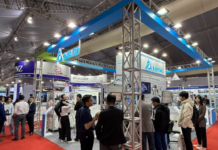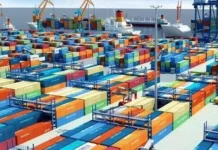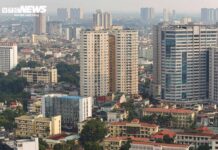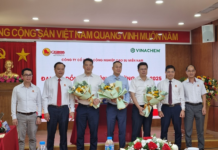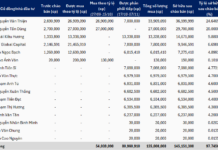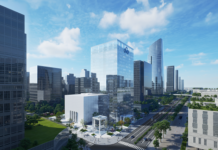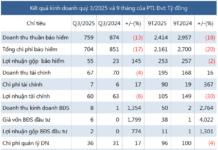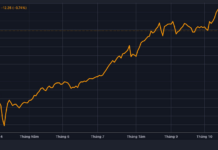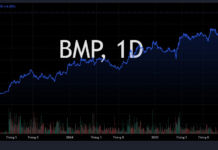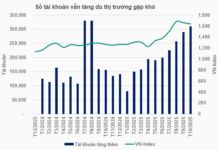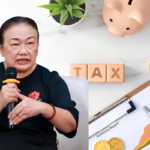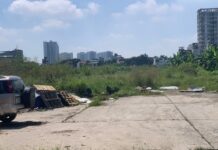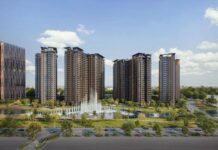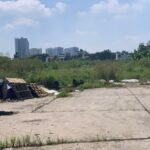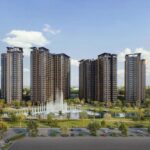On October 28th, during the 10th session of the National Assembly, discussions were held regarding the Supervisory Delegation’s report on the “Implementation of Environmental Protection Policies and Laws Since the Enforcement of the 2020 Environmental Protection Law.”

Secretary-General of the National Assembly, Head of the National Assembly Office, Le Quang Manh. Photo: Pham Thang
Presenting the summary report, Secretary-General of the National Assembly and Head of the National Assembly Office, Le Quang Manh, stated that the enactment and implementation of environmental protection policies and laws since the 2020 Environmental Protection Law came into effect have yielded significant positive results. These achievements contribute to the successful realization of sustainable economic and social development goals, ensuring national defense, security, foreign affairs, social welfare, and international integration.
Environmental protection efforts have seen notable progress, meeting and exceeding several critical targets outlined in the Resolution of the 13th National Party Congress. Vietnam’s sustainable development index has risen, placing it among the top in ASEAN.
Three out of five targets have surpassed the 2025 plan: the rate of urban solid waste collection and treatment meeting standards; the proportion of industrial zones with centralized wastewater treatment systems complying with environmental standards; and forest coverage. The state budget allocation for environmental initiatives has been maintained at no less than 1% of total state expenditure, increasing annually (reaching 1.12% in 2024). Socialization and business investments in environmental protection have also shown positive developments.
However, Le Quang Manh noted that the Supervisory Delegation identified limitations and shortcomings in the implementation of the 2020 Environmental Protection Law. Environmental pollution persists, with complex and, at times, severe instances, particularly air pollution (due to fine dust) in major cities.
Notably, air quality indices occasionally exceed safety thresholds, adversely affecting public health. At times, Hanoi and Ho Chi Minh City have ranked among the most polluted urban areas globally. Water quality in certain river sections, especially in densely populated areas with production, business, and service activities, as well as craft villages along the Cau, Nhue-Day, and Bac Hung Hai irrigation systems, has improved slowly.
“According to the 13th Party Congress Resolution, by 2025, 100% of facilities causing severe environmental pollution must be addressed. However, as of September 2025, 38 out of 435 such facilities nationwide have not completed thorough remediation,” the Supervisory Delegation’s report highlighted.
In response to these environmental challenges, the Supervisory Delegation proposed urgent tasks and solutions to be completed by the end of 2026. These include the effective implementation of the National Action Plan on Air Quality Management and Pollution Control for 2025-2030, with a vision to 2045. Immediate measures are also required to control, prevent, and improve air pollution in Hanoi and Ho Chi Minh City.
For medium and long-term goals by 2030, the delegation recommended intensified efforts to investigate, assess, categorize, and implement plans to restore severely polluted land areas.
Strict control of vehicle emissions is essential, along with limiting polluting vehicles in major cities. A green transition in transportation, coupled with infrastructure investment and supportive policies for public consensus, is necessary. Measures should be taken to eliminate substandard vehicles causing environmental pollution.
Additionally, stringent management of waste from transportation, construction, and agricultural byproduct burning is required. By 2030, Hanoi aims to reduce the annual average PM2.5 concentration by 20% compared to 2024, while maintaining other air quality parameters within national environmental standards.
Surrounding provinces and cities aim for a minimum 10% reduction in annual average PM2.5 levels by 2024. Ho Chi Minh City and other urban areas nationwide should maintain air quality control, preventing further pollution.
Based on the supervision results, the Supervisory Delegation recommended that the Government direct the amendment, supplementation, and implementation of legal documents and policies in the environmental sector to address limitations. Comprehensive and synchronized tasks and solutions should be executed, focusing on resolving bottlenecks and addressing environmental “hotspots.”
Can Goods Without Input Invoices After January 1, 2026, Be Sold? Tax Expert Answers
Tax experts have clarified concerns regarding the sale of goods without input invoices after January 1, 2026. They provide definitive answers to whether such goods can still be legally sold, addressing common uncertainties in the market.
Vietnam’s Regulatory Reform: Amplifying the Voice of FDI Investors
Vietnam is implementing one of its most comprehensive business environment reform programs to date, aiming to slash administrative procedures by 30%. This initiative comes as international investors increasingly seek a more streamlined, transparent, and flexible investment landscape. These reforms are pivotal in positioning Vietnam as a faster, more investor-friendly, and competitive destination in the region.


